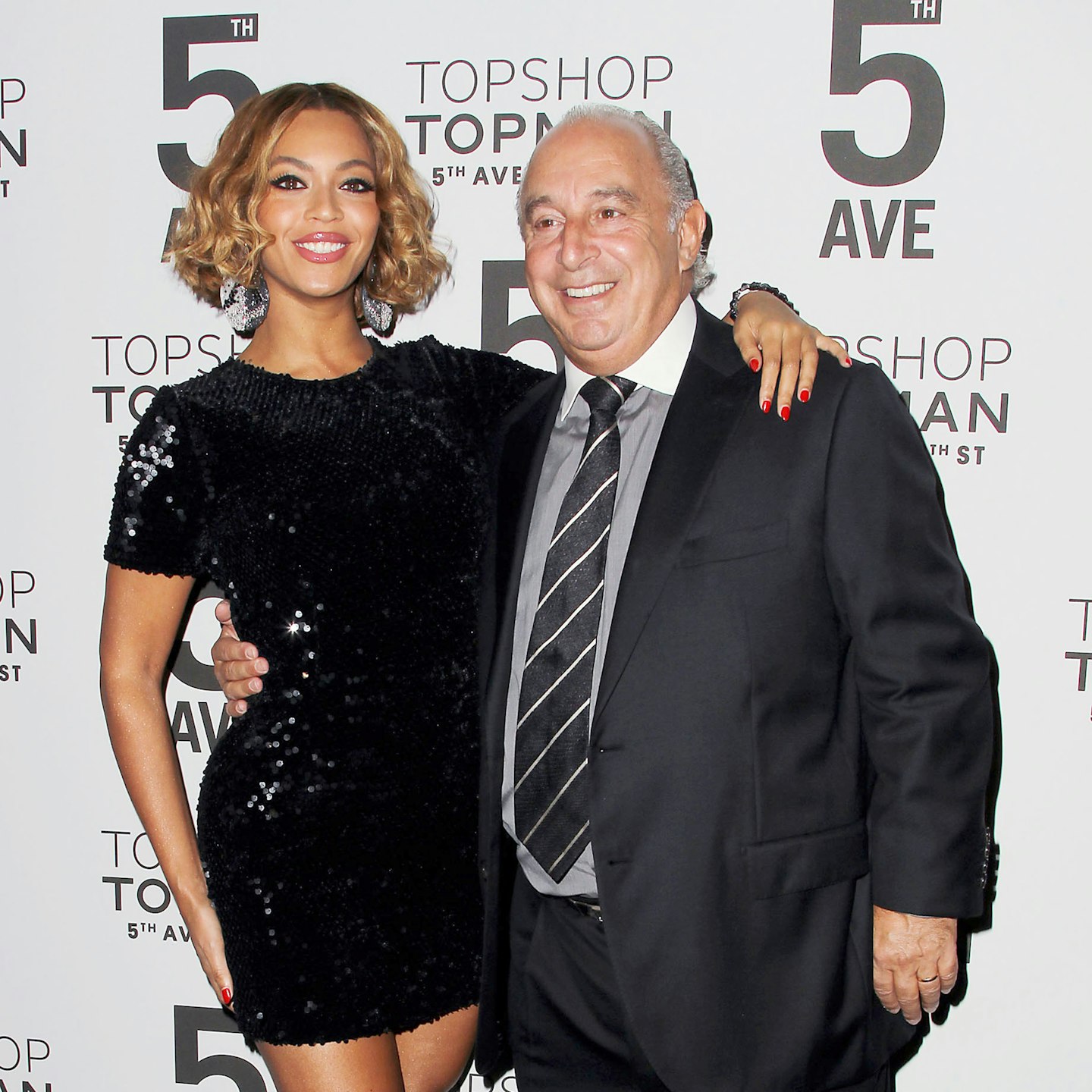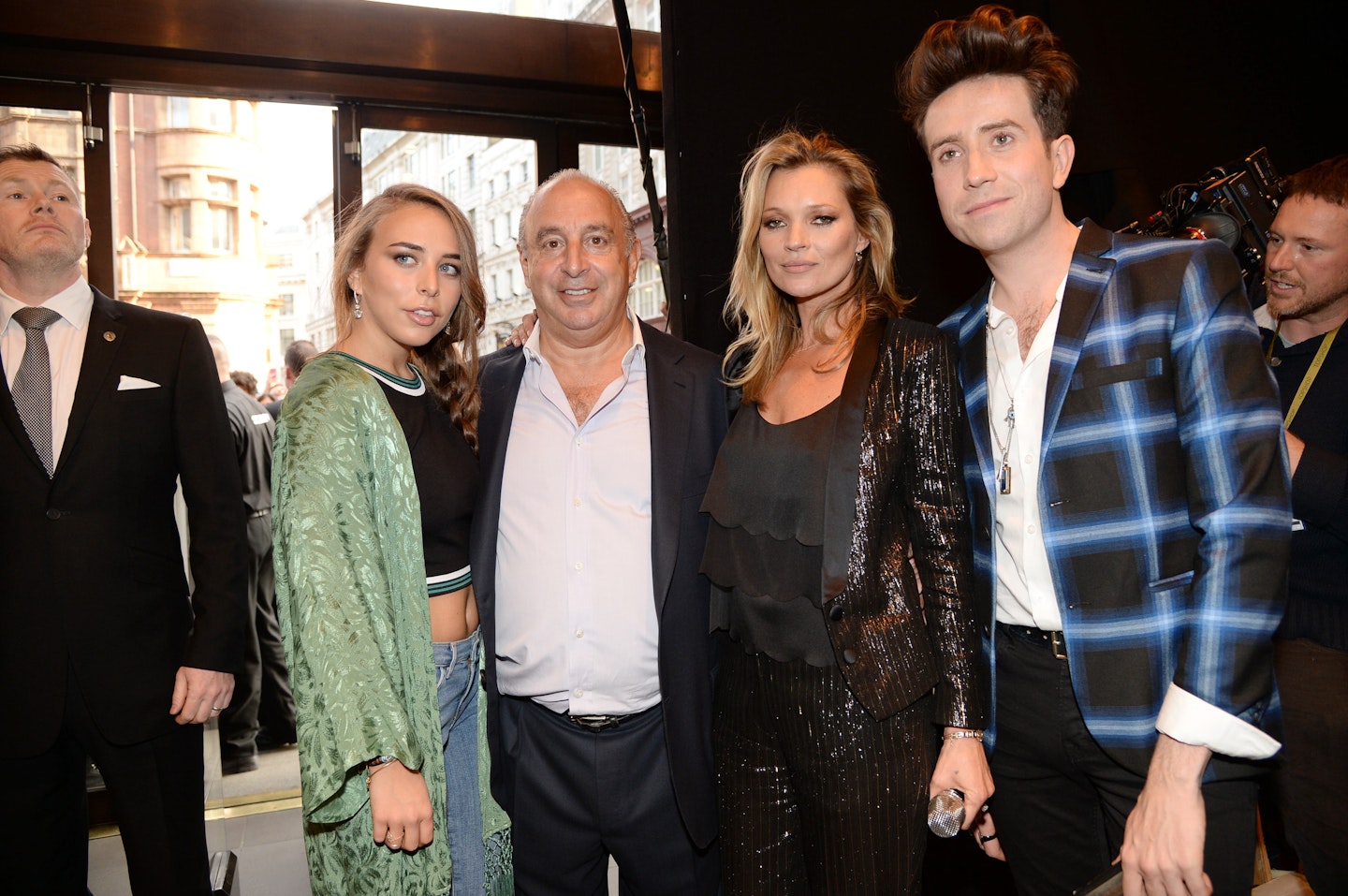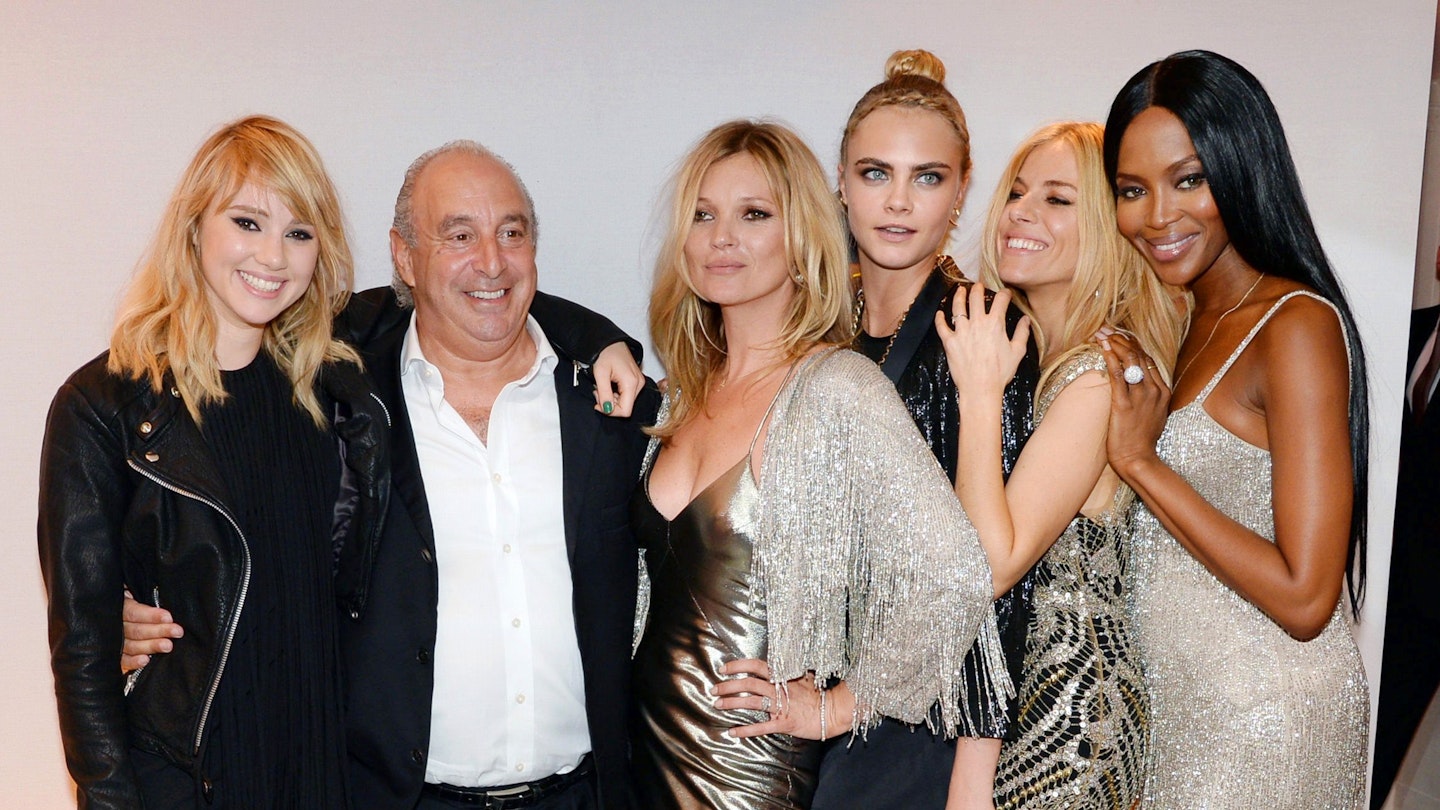Cara Delevingne, Kate Moss, Gwyneth Paltrow, Naomi Campbell, Rihanna, Beyonce and Anna Wintour. What do they all have in common? Well, on top of their day jobs of being models, businesswomen, editors, they’re getting calls from various reporters, who’re very keen to find out what they’ve got to say about Philip Green.
Here’s why. Bear with us, it’s a long, convoluted story. Billionaire retailer Green has denied all allegations of unlawful sexist or racist behaviour after being named in the House of Lords as the businessman who has spent £500,000 on an injunction to stop the reporting of those allegations. Lord Peter Hain used his parliamentary privilege to circumvent an injunction to name the Topshop boss as the man at the centre of what’s been dubbed 'Britain's #MeToo scandal'. It is understood that the alleged victims cannot go public, even after Lord Hain named Green, because they signed non-disclosure agreements (NDAs). Before Lord Hain spoke out in the House Of Lords, it was reported that a British businessman was using gagging orders to silence people alleging improper behaviour, and Theresa May announced the government would look into the use and rules of NDAs, so that they could never be used to cover up wrongdoing in the workplace (they’re intended to be used to keep business secrets).
Now we’ve got that cleared out of the way, it’s time to address the famous women who’ve been asked to provide comment on Green. Why? Well, unlike many other big retail bosses - could you tell us what the M&S boss looks like? What sort of parties J Sainsbury threw? - Green has long courted fame. He likes to be photographed with the beautiful women who’ve shown their support for Topshop at the brand’s fashion shows and events. He throws parties and invites A-listers and likely pays their way to some extent, and to be fair, if you’re a model or celebrity influencer of some sort, it's part of your job to be paid a few grand to turn up somewhere and pose in some clothes and take a photo with the boss, (as for Wintour, schmoozing is key to being the editor-in-chief at Vogue). What isn’t your job is looking out for everything that one guy does.

Yes, his involvement with the BHS scandal has been obviously iffy since 2016. Yes, allegations of bullying against Green were made in the Oliver Shah book Damaged Goods, released earlier this year. Yes, Topshop ordered the dismantling of a feminist stall at the flagship store for ‘creative’ reasons that might seem a little shady. But none of these were the fault of the famous women Green hung out with (remember when he paid a donation to charity in return for a kiss between Jemima Khan and Kate Moss?), and no matter what the allegations of sexual harassment and racial abuse - which Green denies entirely - might be, unless these women are implicated in actual wrongdoing, why should they have to answer to a man’s - alleged - folly? Is their crime simply being associated with someone who's involved in a scandal? It's almost as if once a man is central to a scandal, every woman in his orbit is guilty by association in a way the men in his orbit aren't.
Over the past year, many women have had to answer questions about far more powerful, rich blokes. Some, though, might have had negative experiences with those powerful men that they don't feel comfortable speaking about, or legally aren't allowed to. Accusing women of keeping creepy men's secrets for them, women who have later turned out to be somehow involved in his secrets, isn't exactly encouraging for those who've endured men's...iffy behaviour.

Sure, we get the compulsion for certain quarters of the press to write about famous women, and show photos of Green next to them. We’ve got a few of those sort of photos in this story, in fact. While it is likely that many particular reporters are seeking out any take on Green's behaviour, from women or men, beautiful or not, presenting Green's famous female 'friends' as willfully silent right now look a lot like a hunt for a ‘gotcha’ moment. By singling out these women as responsible for powerful men, it implies that they're too stupid to realise who they've been propping up, or so mean - and hypocritical in their feminism - they've closed ranks around a powerful man.
The questioning of women for a man’s alleged actions feels like a rotten power play that deserves its own analysis. True, Kate Moss has previously been a business partner of Green’s, and her last Topshop collection was in 2014. Beyoncé's Ivy Park range was initially launched through Topshop, also in 2014. Perhaps if we're in the game of asking celebrities about their experiences with Green, it might be worth hitting up Nick Grimshaw, who also did a range with Topman, in 2015. Should powerful men be able to shut women up? Should powerful publications be able to suggest women, to the exclusion of men, are accountable for men’s actions simply by virtue of having hung out with them, or even worked with them? The answer to both is a resounding, simple ‘no’. Depicting women as either stupid or machiavellian in taking sides of an allegedly disgraced man, when the full story isn't out, only seems to prop up the status quo that has seen nasty men long wield their power with impunity.
